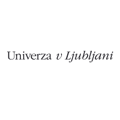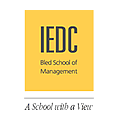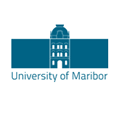Universities in Slovenia

Faculty of Economics, University of Ljubljana
Ljubljana, Slovenia
The Faculty of Economics, University of Ljubljana is an institution devoted to training in the areas of business and economic, internationally recognized for its prestige.

GEA College of Entrepreneurship
Piran, Slovenia
GEA College of Entrepreneurship is an institution offering post graduate and undergraduate courses in Ljubljana, Slovenia. The school centers on improving the knowledge of business strategies and its success. They take their courses in English language with a lot of highly experienced teachers, dedicated to their work. The school is also proud of having a center of higher vocational schools as well as a business educational center that focuses on improving business activities in the world today. They also provide postgraduate study of entrepreneurship - an MBA in Social Entrepreneurship.... See full description.

IEDC - Bled School of Management
Bled, Slovenia
Located in the city of Bled, just 50 minutes from Slovenia’s capital, Ljubljana, IEDC is a school of management education whose mission is to attract the most promising executives and top managers, provide them with world-class management education and other relevant services in an international context, inspire them for lifelong-learning, and prepare them to act and add value as competent and ethically responsible transformational leaders in their organizations and society at large.
IEDC-Bled School of Management is a pioneer in providing a “creative environment for creative... See full description.

University of Maribor
Maribor, Slovenia
The University of Maribor is one of the largest universities in Slovenia, where around 20,000 students are welcome. It has undergraduate and postgraduate studies in 17 faculties.
Universities in Slovenia by City:
BledLjubljanaMariborPiranAbout universities in Slovenia
Since its independence in 1991, Slovenia, a relatively young country, has been focused on developing a robust higher education system. Higher education colleges in Slovenia are broadly categorized into two segments; Higher education colleges, regulated by the Ministry of Higher Education, Science and Technology (established in 2005); and Higher Vocational Education colleges, regulated by the Ministry of Education and Sport. Both public (state funded) and private institutions participate in delivering higher education in Slovenia.
Higher education in Slovenia, since 2010, follows the Bologna cycle and can be broken into 4 stages:
• Short Cycle covering Higher Vocational Education programs
• First Cycle covering Professional and Academic programs equivalent to Bachleor’s degree
• Second Cycle covering Magisterij programs and Long first degree programs, both equivalent to Masters degrees
• Third Cycle covering Doctoral of Science programs
Higher Vocational Education Colleges in Slovenia
Started as part of the upper secondary schools, higher vocational colleges in Slovenia are now operationally independent and are focused on creating a pool of special skilled workforce. These colleges offer a diverse range of courses including mechanics, electrical engineering, photography, geo-technology, civil engineering, information technology, logistics, media, social sciences, telecommunication, environmental protection, food and nutrition, horticulture, tourism and hospitality. Their courses typically fall under Short Higher Education and must be accredited as per national law. Successful completion of the course, lasting 2 years, entitles the student to a diploma in the selected vocation and a supplement in Slovene or foreign language.
The academic year starts on Oct 1 and ends on Sep 30, wherein, usually, 34 weeks are reserved for instruction and 6 weeks for practical training within the relevant workplace or a public enterprise. However, being independent, course structure can vary from one college to the next. With their focus on imparting occupational skills, higher vocational colleges can require practical training for up to 40 percent of course duration.
Admission to higher vocational colleges in Slovenia requires students to successfully complete matura or the vocational matura, at a minimum of level 5 (equivalent to technician). Students with vocational qualification, equivalent of master craftsman, need to show an additional 3 years of relevant work experience as well as proficiency in Slovene language. Applications are processed through the National Application System managed by the Ministry of Education. Colleges can independently determine admission criteria, including additional tests. Selections are usually determined by earlier academic performance and, possibly, additional admission test results.
Higher Education Colleges in Slovenia
Regular higher education in Slovenia is imparted at universities (univerza), faculties (fakulteta), art academies and higher professional colleges (visoka strokovna šola). Faculties and art academies are allowed to offer both academic and professional courses while professional colleges can offer only professional courses. Successful completion of first, second and third cycles entitles the student to a Bachelor’s degree (diploma prve stopnje), Master’s degree (magisterij stroke) and Doctoral degree (doktorat), respectively. Besides regular Bachelor’s, Master’s and Doctoral degree courses, higher education institutions also offer supplementary courses, refresher courses and continued education courses. The academic year extends from 1 Oct to 30 Sep and is divided into Spring and Winter semesters, each 15 weeks long.
Admission to higher education colleges in Slovenia requires students to have passed the general matura examination or the vocational matura examination along with one additional bridging examination. Applications are processed through the National Application System, and selection is contingent on criteria decided independently by the institutions. Typical selection criteria of universities or institutes comprise performance in upper secondary school, matura examinations and any additional tests stipulated by the institution.
The government also promotes higher education by providing financial support to students enrolled in publicly funded institutions and universities in Slovenia. Tuition is waived off in all higher education universities, colleges and institutes. Grants and scholarship are also made available to needy students, primarily determined by their academic performance.
Higher education in Slovenia, since 2010, follows the Bologna cycle and can be broken into 4 stages:
• Short Cycle covering Higher Vocational Education programs
• First Cycle covering Professional and Academic programs equivalent to Bachleor’s degree
• Second Cycle covering Magisterij programs and Long first degree programs, both equivalent to Masters degrees
• Third Cycle covering Doctoral of Science programs
Higher Vocational Education Colleges in Slovenia
Started as part of the upper secondary schools, higher vocational colleges in Slovenia are now operationally independent and are focused on creating a pool of special skilled workforce. These colleges offer a diverse range of courses including mechanics, electrical engineering, photography, geo-technology, civil engineering, information technology, logistics, media, social sciences, telecommunication, environmental protection, food and nutrition, horticulture, tourism and hospitality. Their courses typically fall under Short Higher Education and must be accredited as per national law. Successful completion of the course, lasting 2 years, entitles the student to a diploma in the selected vocation and a supplement in Slovene or foreign language.
The academic year starts on Oct 1 and ends on Sep 30, wherein, usually, 34 weeks are reserved for instruction and 6 weeks for practical training within the relevant workplace or a public enterprise. However, being independent, course structure can vary from one college to the next. With their focus on imparting occupational skills, higher vocational colleges can require practical training for up to 40 percent of course duration.
Admission to higher vocational colleges in Slovenia requires students to successfully complete matura or the vocational matura, at a minimum of level 5 (equivalent to technician). Students with vocational qualification, equivalent of master craftsman, need to show an additional 3 years of relevant work experience as well as proficiency in Slovene language. Applications are processed through the National Application System managed by the Ministry of Education. Colleges can independently determine admission criteria, including additional tests. Selections are usually determined by earlier academic performance and, possibly, additional admission test results.
Higher Education Colleges in Slovenia
Regular higher education in Slovenia is imparted at universities (univerza), faculties (fakulteta), art academies and higher professional colleges (visoka strokovna šola). Faculties and art academies are allowed to offer both academic and professional courses while professional colleges can offer only professional courses. Successful completion of first, second and third cycles entitles the student to a Bachelor’s degree (diploma prve stopnje), Master’s degree (magisterij stroke) and Doctoral degree (doktorat), respectively. Besides regular Bachelor’s, Master’s and Doctoral degree courses, higher education institutions also offer supplementary courses, refresher courses and continued education courses. The academic year extends from 1 Oct to 30 Sep and is divided into Spring and Winter semesters, each 15 weeks long.
Admission to higher education colleges in Slovenia requires students to have passed the general matura examination or the vocational matura examination along with one additional bridging examination. Applications are processed through the National Application System, and selection is contingent on criteria decided independently by the institutions. Typical selection criteria of universities or institutes comprise performance in upper secondary school, matura examinations and any additional tests stipulated by the institution.
The government also promotes higher education by providing financial support to students enrolled in publicly funded institutions and universities in Slovenia. Tuition is waived off in all higher education universities, colleges and institutes. Grants and scholarship are also made available to needy students, primarily determined by their academic performance.

